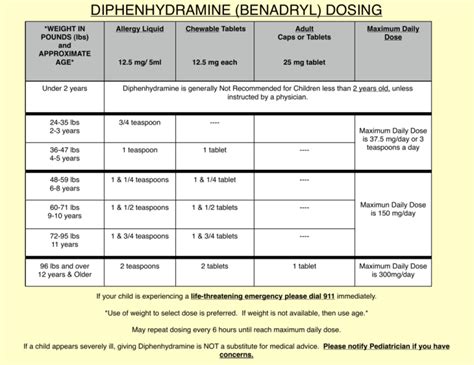Intro
Diphenhydramine for sleep aid helps insomnia, inducing relaxation and calming restlessness, promoting better nighttime sleep quality and duration with antihistamine effects.
Diphenhydramine is a medication that has been widely used for its antihistamine properties, but it is also commonly used as a sleep aid. The importance of a good night's sleep cannot be overstated, as it plays a crucial role in physical and mental health. During sleep, the body repairs and regenerates tissues, builds bone and muscle, and strengthens the immune system. Additionally, sleep helps to improve cognitive function, including attention, memory, and problem-solving skills. However, many people struggle with falling asleep or staying asleep, and this is where diphenhydramine comes in.
Diphenhydramine is an over-the-counter medication that is available in various forms, including tablets, capsules, and liquid gels. It is often used to treat allergies, itching, and hives, but its sedating properties make it a popular choice for people who have trouble sleeping. The medication works by blocking the action of histamine, a neurotransmitter that helps to regulate sleep and wakefulness. By blocking histamine, diphenhydramine can help to induce drowsiness and improve the quality of sleep.
The use of diphenhydramine as a sleep aid is a topic of interest for many people, and it is essential to understand the benefits and risks associated with its use. While diphenhydramine can be effective in helping people fall asleep, it is not without its side effects. Common side effects include drowsiness, dizziness, and dry mouth, and long-term use can lead to dependence and withdrawal symptoms. Furthermore, diphenhydramine can interact with other medications, including antidepressants, antihistamines, and sedatives, which can increase the risk of adverse effects.
Diphenhydramine Mechanism of Action

Benefits of Diphenhydramine for Sleep
The benefits of using diphenhydramine for sleep include: * Rapid onset of action: Diphenhydramine can start to take effect within 30 minutes of ingestion, making it a popular choice for people who have trouble falling asleep. * Improved sleep quality: Diphenhydramine can help to improve the quality of sleep by increasing the amount of deep sleep and reducing the number of awakenings during the night. * Availability: Diphenhydramine is widely available over-the-counter, making it easily accessible to people who need it.Diphenhydramine Side Effects

Long-Term Use of Diphenhydramine
Long-term use of diphenhydramine can lead to dependence and withdrawal symptoms. Dependence occurs when the body becomes accustomed to the presence of the medication and cannot function normally without it. Withdrawal symptoms can occur when the medication is stopped or reduced in dose, and can include: * Insomnia: Withdrawal from diphenhydramine can lead to insomnia, which can be severe and debilitating. * Anxiety: Withdrawal from diphenhydramine can lead to anxiety, which can manifest as restlessness, irritability, and panic attacks. * Seizures: In rare cases, withdrawal from diphenhydramine can lead to seizures, which can be life-threatening.Diphenhydramine Interactions

Precautions and Warnings
Precautions and warnings when using diphenhydramine include: * Pregnancy and breastfeeding: Diphenhydramine should be used with caution in pregnant and breastfeeding women, as it can pass into breast milk and affect the baby. * Children: Diphenhydramine should be used with caution in children, as it can cause excessive sedation and other adverse effects. * Older adults: Diphenhydramine should be used with caution in older adults, as it can cause excessive sedation, confusion, and other adverse effects.Diphenhydramine Dosage

Overdose and Toxicity
Overdose and toxicity can occur when excessive amounts of diphenhydramine are ingested. Symptoms of overdose and toxicity include: * Excessive sedation: Diphenhydramine overdose can cause excessive sedation, which can lead to accidents and injuries. * Confusion: Diphenhydramine overdose can cause confusion, which can manifest as disorientation, agitation, and hallucinations. * Seizures: Diphenhydramine overdose can cause seizures, which can be life-threatening.Alternatives to Diphenhydramine

Lifestyle Changes
Lifestyle changes can also help improve sleep quality, including: * Establishing a consistent sleep schedule: Going to bed and waking up at the same time every day can help regulate the body's internal clock and improve sleep quality. * Creating a sleep-conducive environment: Creating a dark, quiet, and cool sleep environment can help improve sleep quality. * Avoiding caffeine and nicotine: Avoiding caffeine and nicotine before bedtime can help improve sleep quality.What is the recommended dosage of diphenhydramine for sleep aid?
+The recommended dosage of diphenhydramine for sleep aid is typically 25-50 mg, taken 30 minutes before bedtime.
Can diphenhydramine be used for long-term sleep aid?
+No, diphenhydramine is not recommended for long-term sleep aid, as it can lead to dependence and withdrawal symptoms.
Are there any alternatives to diphenhydramine for sleep aid?
+In conclusion, diphenhydramine can be an effective sleep aid for people who have trouble falling asleep or staying asleep. However, it is essential to use the medication responsibly and follow the recommended dosage to minimize the risk of adverse effects. Additionally, lifestyle changes, such as establishing a consistent sleep schedule and creating a sleep-conducive environment, can also help improve sleep quality. We invite you to share your experiences with diphenhydramine or other sleep aids, and to ask any questions you may have about this topic.
